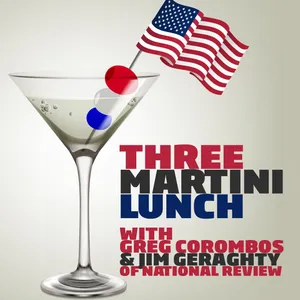Podcast Summary
Alexei Navalny's First Encounter: A Young Intellect with a Beer Belly: Navalny's impact went beyond Moscow, inspiring Russians to challenge Putin's regime despite his passing, leaving a void in Russian politics and raising questions about the future of opposition.
Alexei Navalny, a Russian opposition leader known for his relentless fight against corruption and defiance of Vladimir Putin's regime, passed away in prison at the age of 44. Navalny's impact went beyond liberal Moscow, and his message to Russians was "do not be afraid because our fear is their power." Yevgenya Albutz, a Russian journalist and academic who knew Navalny for decades, shared her first encounter with him. In 2004, she was teaching political science in Moscow and hosting weekly gatherings for young politicians to discuss grassroots organizing. Navalny, then a 20-something-year-old with a beer belly and a stooped posture, attended one of these meetings. Albutz was impressed by Navalny's intelligence, talent, and ability to get things done, but noted that he was not an excellent speaker. Navalny's passing leaves a significant void in Russian politics and raises questions about the future of opposition in the country.
Navalny's charisma and education fueled his political success: Navalny's natural charm, ability to connect with people, especially the elderly, and hunger for education helped him rise to prominence in Russian politics.
Alexei Navalny's political success can be attributed to his natural charisma and ability to connect with people, especially the elderly, as well as his hunger for education and learning about American politics. When Genya first met Navalny, he was working a desk job for an opposition party and appeared to be unhappy. However, Genya recognized his potential and was struck by his ability to charm even the most reluctant grandmothers during a campaign. Realizing the importance of education to further his political career, Navalny attended Yale University to learn about American politics and election strategies. He became an avid consumer of political content, absorbing knowledge from various sources and experimenting with new tactics. This combination of charisma, determination, and education played a significant role in Navalny's rise to prominence in Russian politics.
Navalny's Inspiration and Political Journey: Navalny's political education, inspired by American politics and 'House of Cards,' led him to challenge Putin. He traveled across Russia, connecting with people and promising to bring power back to them. Despite being labeled a populist, Navalny gained a significant following, inspiring people with his calls for democracy and prosperity.
Navalny's political education and charisma, inspired by observing American politics and Kevin Spacey's character in "House of Cards," led him to become a formidable opponent to Putin. He ran for office in Moscow and later for the presidency, traveling across Russia to connect with the people and promising to bring power back to them. Navalny's speeches were sincere and resonated with the crowds, who were impressed by his determination to challenge the corrupt elite and improve their lives. Despite being labeled a populist, Navalny gained a significant following, and people were moved to tears by his calls for democracy and prosperity. Ultimately, Navalny's goal was to bring politics from Moscow to the provinces and give power back to the people.
Navalny's Duty to Challenge Putin: Russian opposition leader Alexei Navalny believed it was his duty to challenge Putin's authoritarian rule, even facing personal risks including poisoning and imprisonment.
Russian opposition leader Alexei Navalny saw it as his duty to challenge Vladimir Putin in the presidential election, despite the risks involved. Navalny believed that Putin was undermining democratic institutions and that only he could stop him. When he was barred from running, Navalny was angry but didn't give up on his political activism. Eventually, Putin attempted to silence Navalny by poisoning him, leading Navalny to recover in Germany before returning to Russia to face arrest and imprisonment. The stakes were high, and Navalny's determination to challenge Putin despite the personal risks underscores the significance of his political stance.
Don't let fear rule you: Russian opposition leader Alexei Navalny urged people not to give in to fear, believing that fighting for their country despite the risks could lead to victory.
Russian opposition leader Alexei Navalny's message to the people was to not give in to fear, as the power of the Soviet KGB and Putin's FSB lies in controlling the population through fear. Navalny, who returned to Russia despite the risks, believed that people should fight for their country and not let fear be their rulers. He felt a sense of mission and believed he could win the fight against the political police, even if it meant facing imprisonment or even death. Navalny's courage and lack of fear served as his greatest strength, inspiring others to join the fight for change.
Navaly's Legacy: Hope Beyond Fear: Navaly's tragic death inspires hope for a peaceful and prosperous Russia, leaving a lasting impact on young generations.
Despite Navaly's tragic death, his belief in a democratic and free Russia inspires millions. His courage and sacrifice for his country's future will live on, as will his wife's determination to carry on his fight. Navaly's legacy extends beyond fear of the regime, instead embodying hope for a peaceful and prosperous Russia. Personally, his friend Janja will miss their conversations, his smile, and the politician who aimed to turn their country into a normal democracy. The loss of Navaly is still hard to comprehend, but his impact on young Russians will continue to be felt.
Russia's Navalny situation and global controversies: Russia's Navalny's death sparks international outrage, Alabama court ruling halts IVF treatments, Biden considers preventing illegal asylum claims
The world continues to grapple with complex and contentious issues, from human rights and justice to reproductive rights and immigration policy. In Russia, the death of opposition leader Alexei Navalny has sparked international outrage and calls for accountability, as his body remains in the custody of authorities and his family is denied access. Meanwhile, a ruling by Alabama's Supreme Court that frozen embryos should be considered children has sent shockwaves through the reproductive medicine community and led to a pause in IVF treatments. And President Biden is considering executive action to prevent people who cross the U.S.-Mexico border illegally from claiming asylum, in an effort to address the ongoing crisis at the southern border. These developments underscore the ongoing challenges and debates that shape our world today.






